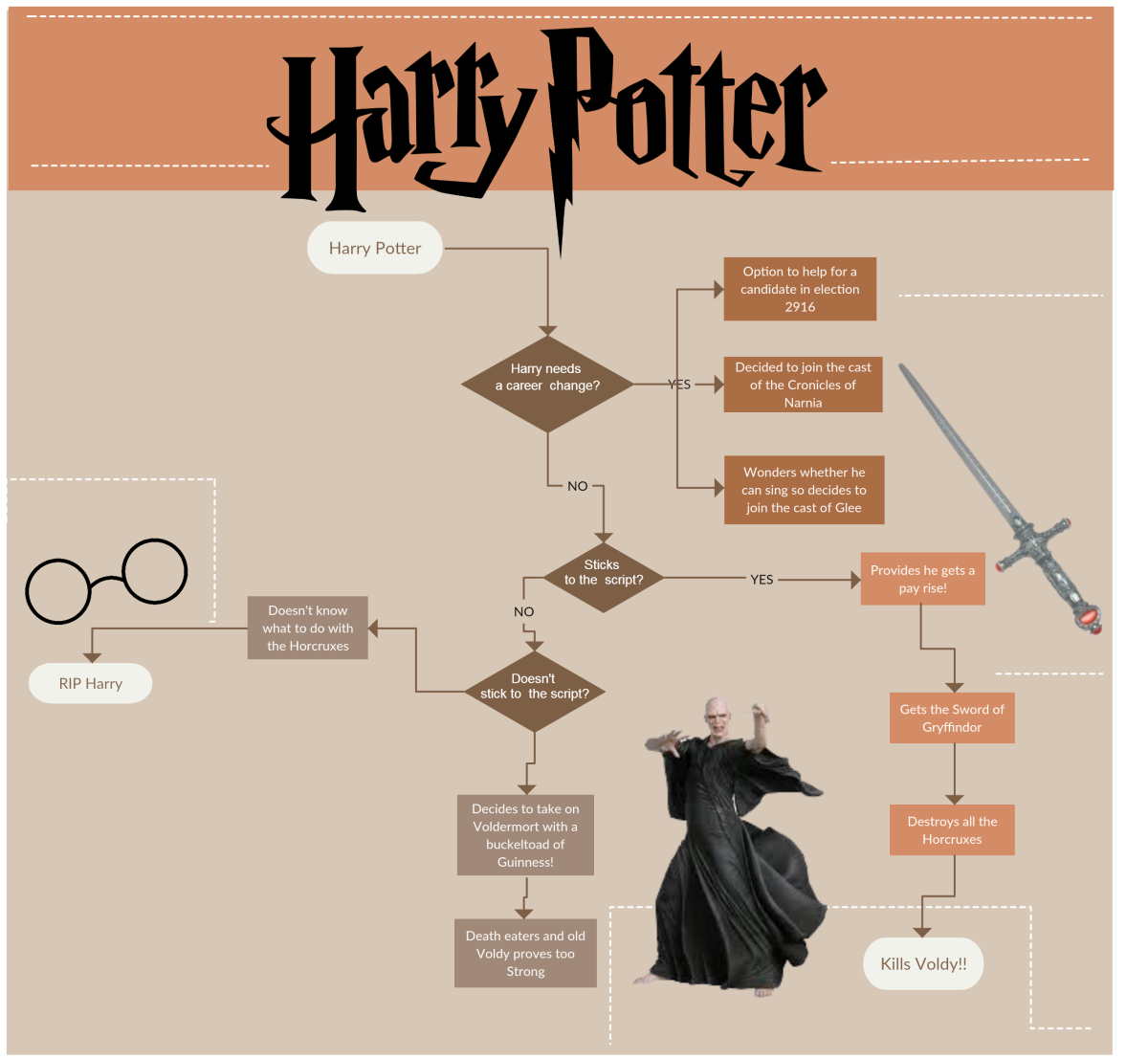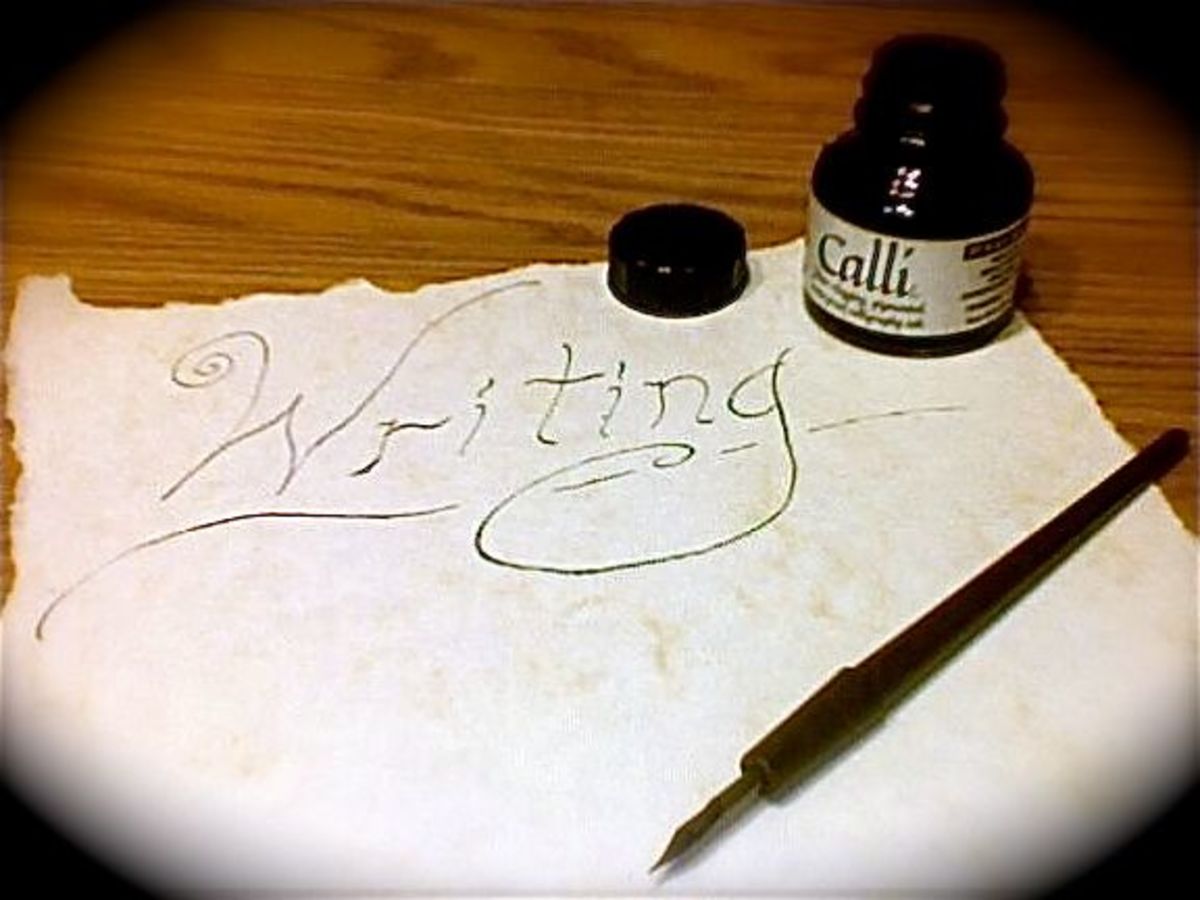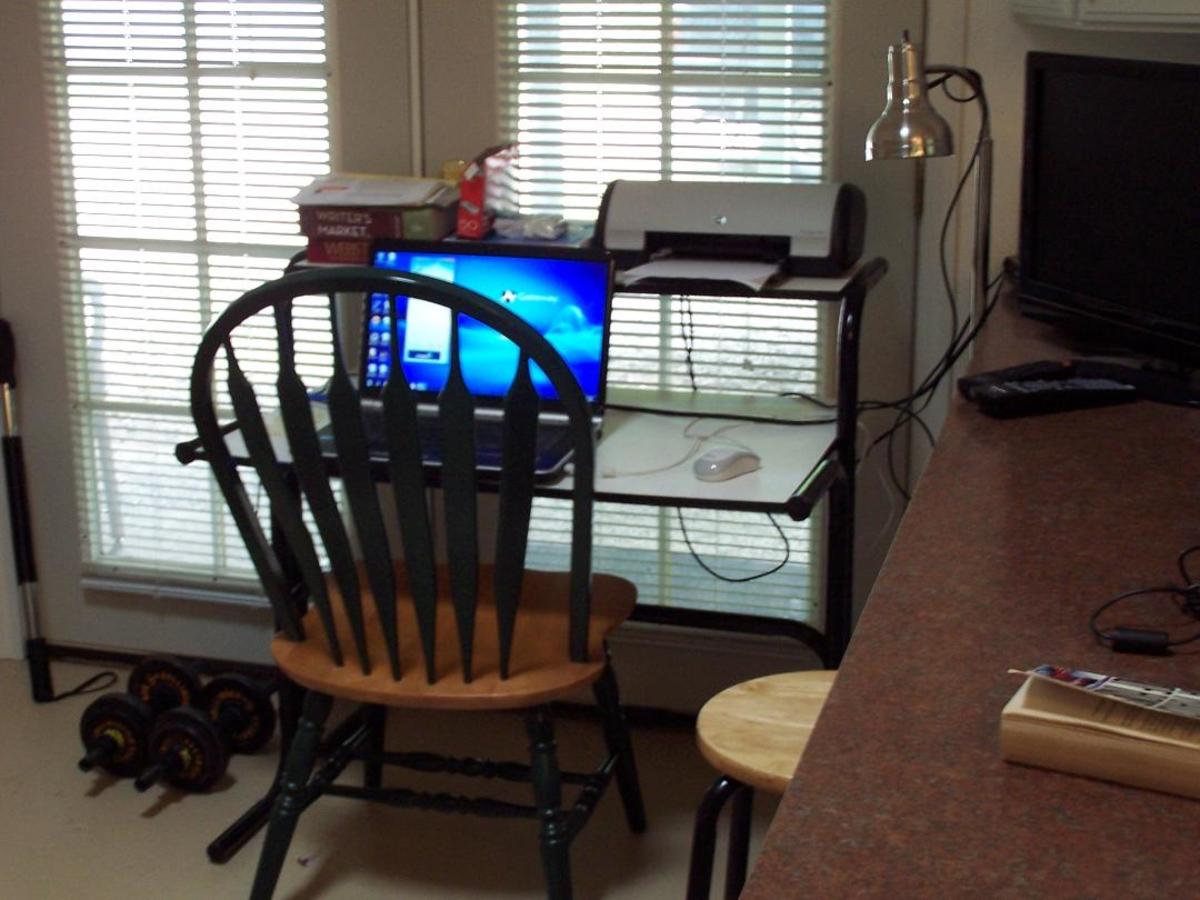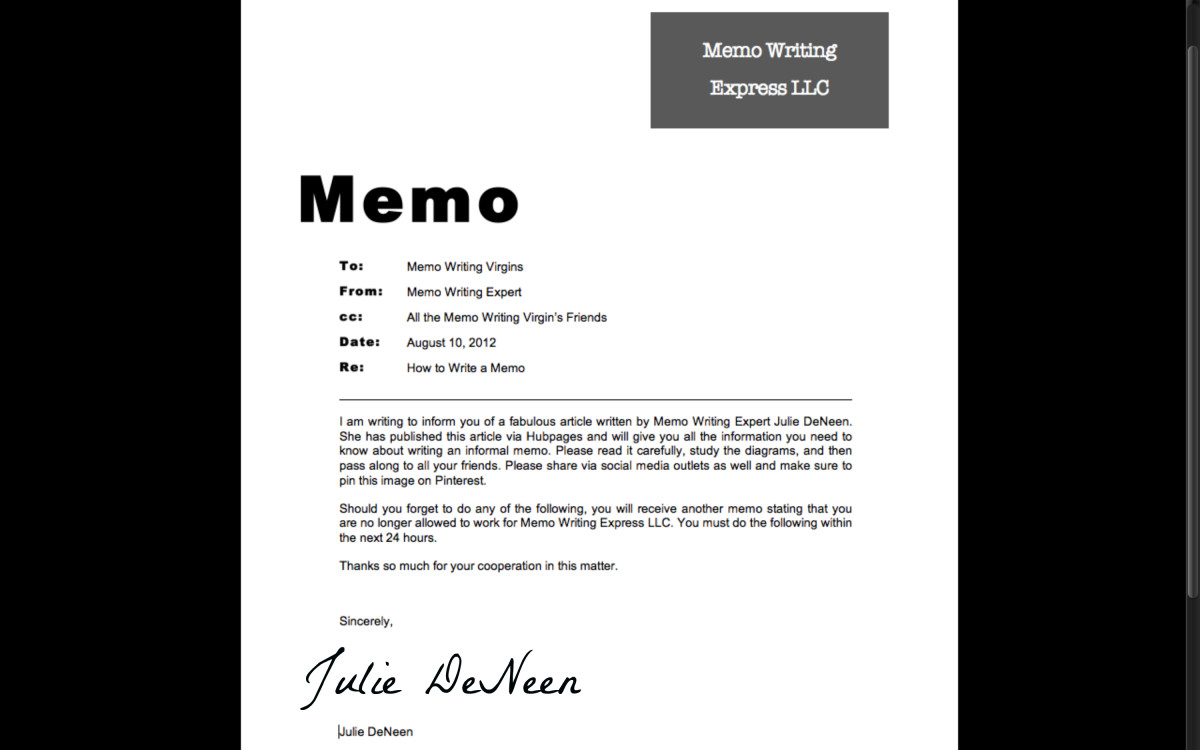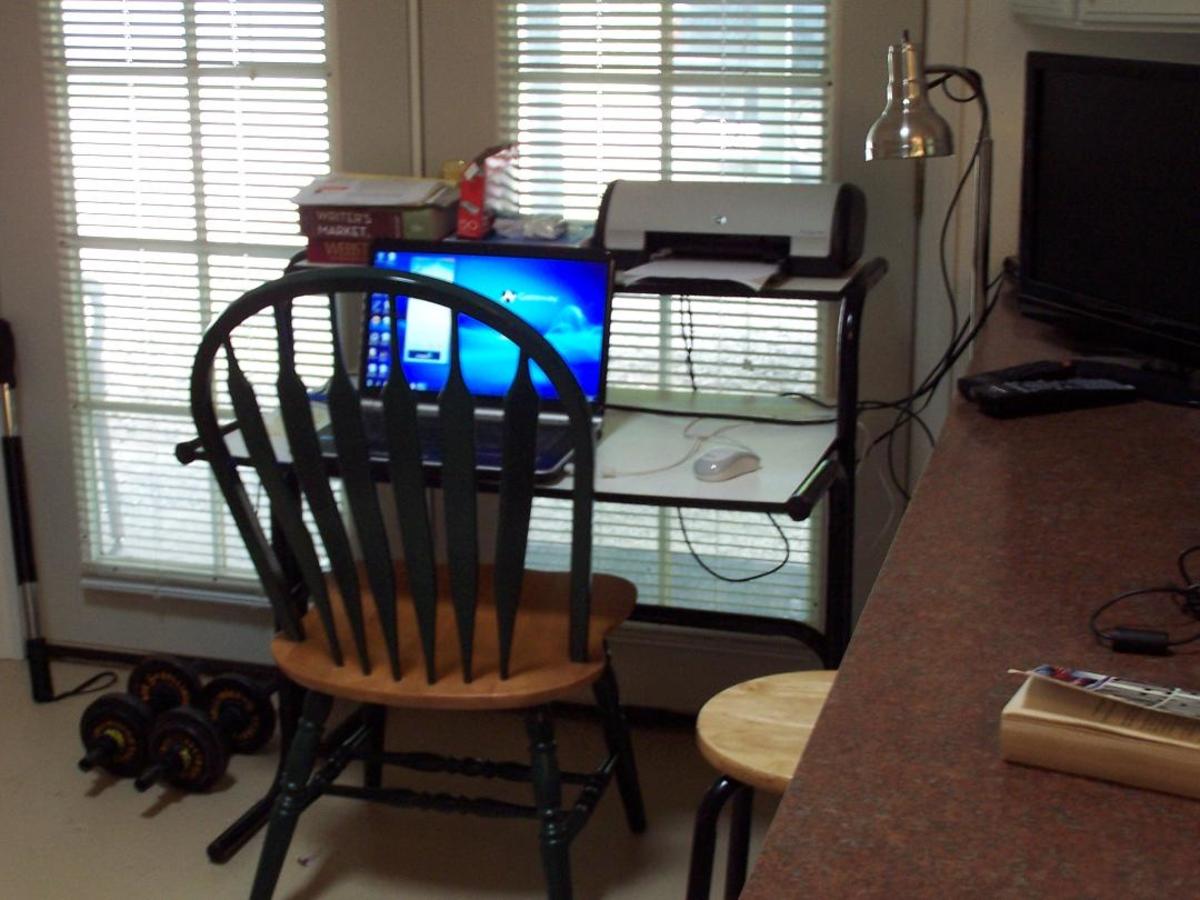10 Steps To Successfully Write Your Masterpiece For The Stage Or Screen
A guide for aspiring screenwriters and playwrights
You've written your theatre or film masterpiece. The finished manuscript is sitting there, on your hard drive, or on your desk all shiny and brimming with possibility in it's new completed glory. Now what? Here are some tips and tricks to help you get ready to realise your dream of hearing your words spoken on the stage or in a darkened cinema.
STEP 1 - Give Your Script To Someone Else To Read
And I don't mean your mother. Unless she's a Broadway, West End or Hollywood producer, and if she is, could you pass on her contact information to me? But seriously, if she's not, then she's unlikely to be very objective about your work and while we all love praise, you'll need a less biased critic to know if your work is truly ready to be put in front of an audience.
Give the script to someone you know well enough to trust their opinion, and will be honest. They don't have to be brutal, but they do need to be able to notice and articulate the flaws in your work. And trust me, there will be flaws. Maybe they're not huge, but they'll be there. Very few first drafts make it to performance stage.
STEP 2 - Listen To The Feedback Given
There's no point in asking someone to read your work and then ignoring or fiercely arguing with what they have to say. That just wastes their time - and unless they are a professional script consultant and you've paid them for their effort (which is always a good option if you have the funds), it will only serve to annoy them (violently arguing with a script consultant is not a good idea either). You gave them the script because you trust and respect their opinion, so at least do them the courtesy of hearing what they have to say. I'm not saying that everything they say will be gospel - but you should still listen to them and then use your own judgement (as objectively as possible) about what feedback should be heeded and what can be dismissed as just opinion or personal taste.
A way to ensure that the feedback you're getting isn't purely personal opinion, but actual objective critique is to get more than one person to read the work. About three people is a good number. Then you can compare the feedback and see what common points come up. Don't go too crazy and get dozens of people to read it - that will only lead to your getting confused with all the different opinions and ideas, and during rewrites (and trust me, there'll be rewrites), your "voice" in the piece may get lost or overrun with everyone else's. From my own experience, a maximum of five people should be asked to give feedback at any one draft stage.
STEP 3 - Rewrite, Rewrite, Rewrite
The biggest problem with both play and film scripts, is the lack of development of the work. Some writers have the luxury of time to hone their work to near perfection, but sadly, especially once you're getting paid for it, this is not always the case. If you're just starting out and doing this in your own time, then you DO have the luxury of creating the best work possible - so take advantage of it!
Rewriting, however, is not always the most fun part of the job. You'll find that suddenly the most mundane of tasks will begin to take priority. Washing the car, vacuuming the house, cleaning the bathroom - these sort of things will suddenly seem very urgent and, particularly if you're in the middle of a difficult rewrite, you'll suddenly find yourself with a bottle of cleaning fluid in one hand and a squeegee in the other, washing the windows. I know, I've been there.
Rewrite Tip # 1: Set Up A Writing Schedule
While stepping away from the computer when you're stuck is always a good idea to help you get perspective and give you some thinking time, don't let these chores distract you from actually finishing the work to hand. One way to help keep you on track is to devise a writing schedule. It doesn't have to be rigid, but it can help.
As each script is different, so is each writer and their writing habits. Some writers allocate a certain time of day to work and stick to it almost religiously. The time of day you chose to write will depend entirely on what kind of person you are. Some writers work in the morning, because they feel they're freshest at that time of the day. Others write in the afternoon, once they've got all their other chores out of the way, because they feel more relaxed and focused. I tend to write in the wee hours of the night and morning, as I work from home and that's when the phone has stopped ringing and other distractions have ceased (I'm also not really a morning person, unless I'm filming!).
Some writers set themselves a deadline and then write ferociously every day. I will admit that I have done this in the past (my first film script was written to first draft in four weeks, and my first play in ten days), but this way only really works if you don't work a "day job" (i.e. have to leave the house to work for someone else) and have the ability to shut yourself away from the world for an extended period of time.
Rewrite Tip # 2: Listen To Music
Another way to help you remain inspired is to find other things that trigger your creativity. I tend to listen to music when I write and the type of music I listen to depends on the genre and style of script I'm working on.
For example, I'm in the midst of rewriting one of my plays - 'Till The Boys Come Home (which is why I'm distracting myself by writing this lens!). It's set in 1940s Australia on the Home Front of Melbourne (in Victoria), therefore I currently have on my iPod a huge selection of 1940s music, which plays in the background as I write. On a subtle level, it gets me into the mindset of the period and helps me picture the characters and their setting.
I'm also rewriting one of my film scripts, set in Scotland, which involves a lot of Scots mythology. So, I have another playlist on my iPod of Celtic music (both modern and traditional) that I use during those writing periods for the same reason. (I tend to work on two scripts at once, to keep me fresh, but you probably won't be doing that until you've got a bit more experience writing your first one).
Rewrite Tip # 3: Research, Research, Research
The other thing that not only helps with inspiration, but is also mandatory when working on a script is Research. And I deliberately say Research with a capital "R", because it is vital to the process. Really, once you've got more experience, research should start before you even put fingers to the keyboard, but for most first-time writers it's something that only happens after the first draft is written.
Most writers will start with what they know - this is only natural as it's usually all we have to work with at first. But, unless you've had a fascinating life or have a fascinating job, it may not make fascinating viewing. Definitely use elements of what you know to give the piece some depth and "truth" (I say "truth" with quotations because everyone's "truth" will be different, depending on your experience of life), but try to distance the work from your own life by setting it elsewhere, or in a different family set-up or in a different job - you get the idea. This will not only help with making it more interesting to the reader/audience, it will also help you to be a little more objective as the writer.
And this is where research comes in.
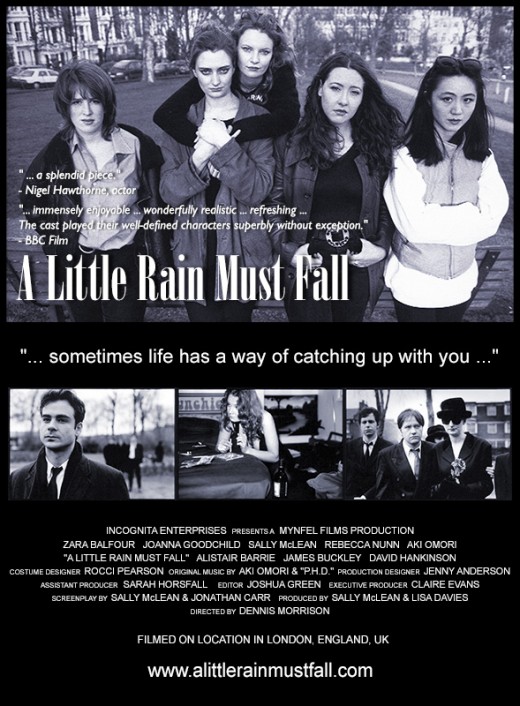
A Research Example
When I first began writing scripts, I started with a film script. I was living in London at the time and had lived in a lot of different flat-shares (apartments, for our US readers). I was also going through a relationship break up. Can you guess what that film was about? Yep, an Australian girl living in a flat-share in London going through a relationship break up. Doesn't sound that interesting, does it? No, it doesn't. So, once I'd written draft one and got all that angst out on the page, then the real work began.
It was now time to use my imagination. The basic premise of an Australian girl living in a flat-share situation in London and going through a break up was fine, but wasn't going to sustain a full film on it's own. So, I then began to create other characters around her, based on previous and current flat-mates, who had their own problems and challenges. I then added a death of one of the characters, always a good plot point in a "slice of life" piece (and no, it wasn't the ex-boyfriend character!) and then dealt with how a death affects the other people concerned and changes them. Or doesn't.
So, where did the research come in? Well, obviously I used a lot of what I already knew. But I also talked to a lot of my friends who had shared apartments to get their funny or tragic stories about their experiences. I also had to learn about the hospital procedures undertaken when someone overdoses on drugs. That meant visiting a couple of hospitals and talking to Emergency Room nurses. And finally, I had to learn about how death of a young person affects those around them. I spoke to a couple of friends who had gone through the experience and watched a lot of documentaries.
Only then did I attempt Draft 2.
Rewrite Tip # 4: Know The Market You're Writing For
What genre, audience and style
Again, with more experienced writers, this element is one of the first considerations before you even start. But, again, most first-time writers are too busy writing about what they know, and want to say to the world, to think about this. But think about it you must, and now is the time to do it.
Are you writing a big budget feature? Probably not the best way to start, as those kind of films are usually made by a Hollywood studio and use a lot of experienced writers, but I always say that you never know what's going to work, or who is going to pick up the script and produce it once it's done, so if you have that in you, then go for it. At worst, it will be a great learning curve. At best, you might even get it made.
A large musical theatre piece? Again, maybe not the best way to start, but again, you never know. You could be the next Andrew Lloyd-Webber or Tim Rice, so go for it.
Most first timers start with a low budget idea - that is - limited locations, no special effects and usually character-driven pieces. That's what my first film was. And my first play. There's less pressure, you can usually use what you already know and there's a higher chance it will get made into a film or theatre production if it's interesting enough or deals with a current issue.
Then there's the genre. Are you writing a sci-fi piece? A period piece? A murder/mystery? A comedy? A drama? A "slice of life" (also known as a "kitchen sink drama" in theatre circles). There are many different genres and you'll need to know the genre inside out to write in the same mould successfully.
The best way to do this is to watch other films or theatre productions from the same genre/style. The danger in this is that you could be influenced by the other writer's style, so try to watch it as objectively as possible and just concentrate on the formula used.
By formula, I mean plot points (i.e. when the story takes a new turn or moves forward) and story arc (i.e. the "shape" of the story - where it starts, where it travels and where it ends).
A Genre/Market Example
Here’s an example from the sci-fi genre:
We have a hero that is living his life and just getting on with it. He may not be completely content with his lot, but he’s not sure how to break out of his situation, so he just keeps on going. A droid comes into his life that contains a secret message and is looking for a mysterious man that our hero thinks he may know. Unbeknownst to our hero, an evil lord is also looking for the droid and has already begun the hunt. After a series of events, it is revealed that the man the droid is looking for is indeed the mysterious man our hero suspected and that this man was, in the past, a great warrior.
Our hero is offered a quest. Despite not liking his current life all that much, he is frightened and refuses it. Meanwhile, the evil lord’s minions have discovered that the missing droid has been bought by our hero’s family and have killed the family and burned their home to the ground in their search for the droid. Our hero discovers this has happened and suddenly has nothing left to stay for on his home planet. He therefore accepts the quest and goes with the mysterious man.
Our hero then has a series of adventures and challenges, meeting a diverse group of others who join the quest, and in the process begins to learn about who he truly is. When the mysterious man, who becomes our hero’s mentor, is killed, our hero is then left to fend for himself and learns that he is greater than he ever imagined.
By skill, luck and wit he defeats the evil lord, with the help of his new friends, and saves the universe from a terrible fate. Or does he? (That’s the classic ending for a sequel, in case you were wondering!).
Now, what film have I just described (albeit very simply)? Yes, it’s Star Wars – a film considered to be a classic in the sci-fi/space adventure genre, which, in my opinion, it is. George Lucas was a maverick of his time, of that there is no doubt. But he also drew inspiration from many different sources, as any writer will, including The Bible, mythology and Joseph Campbell.
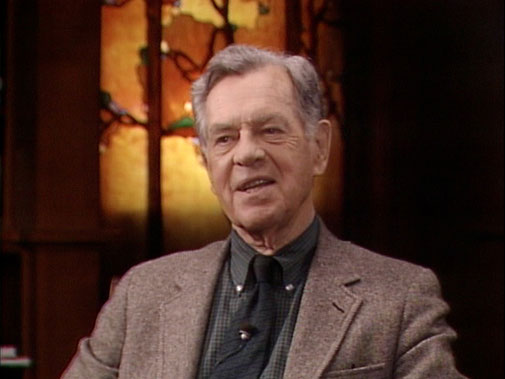
Who was Joseph Campbell?
Joseph Campbell was a man who explored and wrote about storytelling. It is through Joseph Campbell's work that the classic "Three Act" story structure for scripts was born. And it's what George Lucas drew on when structuring his work as well - because it works.
People now play around with the Three Act structure, some now say a script should have Four Acts, but the basic principals remain the same.
There is too much information about how to write in the Three Act structure to put in this lens, so I've included links at the foot of this article so you can do your own research on the subject.
You'll also find a list of recommended reading below:
STEP 4 - Repeat Steps 1, 2 and 3
I'm sorry, but yes, you will have to. In fact, you'll have to do this through Steps 5 and 6 as well ...
Step 5 - Repeat Step 4
Step 6 - Repeat Step 5
STEP 7 - Polish Your Script
Most scripts should at least be at Draft 4 before going to the "Polish" stage. This is the opinion of most screenwriters, playwrights and producers I know. Drafting to 4th Draft means that most of the bugs should have been dealt with and all your research and character development should be fairly robust and detailed.
So, what's "polishing"? Well, the devil's in the details, as they say. It's the details that make a script look really professional.
Polishing Tip #1: Make Sure You're Using The Right Script Format
You won't be considered a professional if you haven't got your script in the right format. You probably should have made sure that you're script is in the right format before you began, but, as I'm writing for first-timers, I've put this tip here, because when you're busy re-formatting your script, it will also give you a chance to do the other polishing tips I've listed here.
There are many script formatting software programs available to purchase that will do this automatically for you and I've included links to the most popular ones at the foot of this lens. There are also some free templates, and I've also included links to those.
Polishing Tip #2: Run A Spell Check
I cannot tell you how annoying it is to read scripts that people have not bothered to spell check. It is distracting, it pulls you out of the story and it's unprofessional. When a producer is reading a script, you usually only have the first ten pages to make an impression before the script ends up in the bin or, for those more fortunate, on the "possible" pile. Do not ruin your chances of having your script made, by having spelling errors ANYWHERE in your script.
Also, keep in mind that with English, the US spell differently to the UK or Australia - if you're from the US and reading this lens, you'll notice that some words look wrong - that's because I'm writing as an Australian, so using the UK version of the English language. However, if I was writing a script for the American market, I'd make sure that I was using US spelling. This goes back to "Know Your Market".
Polishing Tip #3: Make Sure Your Character Names Are Consistent
What do I mean? Make sure that your characters' names don't change halfway through the script. For example, you start off naming one character "Peter", then start naming him "Mr Jones" halfway through, because that's what the other characters are calling him in their dialogue at that moment.
Make a choice - is the actor going to be credited as "Peter" or "Mr Jones"? The character can still be named just "Peter" in the script, even if he's listed as "Peter Jones" in the film's credits, but you have to be consistent with naming your characters when they speak their dialogue or undertake any kind of action, otherwise it just gets confusing for the reader. And your script will be read before an audience gets to see the film or play, so this point is important!
Polishing Tip #4: Check Your Grammar
If you character speaks in a certain way, then grammar mistakes are fine, as that is your character's voice or style of speaking. However, there should be NO grammatical errors in your "Big Print" (i.e. the scene or action descriptions). It's unprofessional and shows that you do not understand the basic principals of writing. Microsoft Word runs a grammar check function, and while it's not the greatest, it will at least fix most of the errors, if they're on the page.
STEP 8 - Have A Reading
Now that you've done all of the above, it's time to put actual voices to your work (other than the ones in your head!), so you can hear the script out loud and identify any remaining issues with the piece.
You don't need professional actors to do this, you could just do it with family and friends, but it's best to make sure that they can put a little emotion or feeling into the words and are comfortable with reading something out loud, so you get a good idea of how it's going to sound. This step is good for those who struggle with writing dialogue, as it will show up any clumsy or difficult lines that an actor may have trouble with.
Get one person to read out the "Big Print" (i.e. the actions/descriptions you've included in the script). They'll essentially be the Narrator - outlining the situations and settings you've created.
Either video or record the reading, if you can, so you can refer back to it later. Do not interrupt the reading at any stage - if an actor is struggling, don't worry, they'll sort it out. Make notes as the reading takes place on anything that jumps out at you as needing to be fixed.
At the end of the reading, ask for feedback. Those who've been reading your work out loud will have a different perspective to those who've been reading the work only. It's all helpful. Again, listen to them, don't argue, just take it in and then see where the common points come up.
STEP 9 - If required, Repeat Step 3
Yep, sorry about that, but after the reading of your work, you will most likely have to go back and do another rewrite ...
I never said these were EASY steps, did I?
STEP 10 - Presentation: Get Your Script Ready For Submission
The following steps are usually used for screenplays only, but can also be applied to play scripts.
The following tips are industry standard for screenplays and theatrical plays. I've tried to cover all countries, but the US is the dominant market for screenplays in particular, so I apologise now to all non-US readers for it being so US-centric.
That said, as you're likely to be submitting to the US at some point, it's all worth knowing ...
Presentation Tip #1: What Paper Should I Use?
Most screenplays are printed in the US on 3-hole 20 lb. plain white 8 1/2 x 11" paper (also known as "Letter" size in Australia and the UK). If you can't get pre-hole punched paper, then just use plain paper and punch your own holes in it (taking care when you do so, of course!). While it is best to print your script on that format if you're intending to send it to the American market, they won't get too upset if you have to submit it on A4 size (especially if you're from overseas).
Print your scripts on one side of the paper only. Yes, I know that we're supposed to be saving the environment, and I do everything in my power to help this worthy aim, but double-sided scripts are every assistant's worst nightmare when they have to copy them (and you want them to have to copy them as it means the producer likes the work). It also makes it hard to read. I don't know why that is, but I personally find it very difficult - possibly because I'm used to the one sided versions.
Presentation Tip #2: Covers
The outside covers are usually made of cardstock about 80lb in weight. Don't put anything on this cover, it's just there to give your script a professional edge. Do not use graphics or images ANYWHERE in your script. This will scream "Amateur" and will cause your wonderful work to not be taken seriously. Also, best to avoid clear covers. There's just an unwritten rule that plain card stock only should be used.
Use a basic inside cover page (or "fly" page as it's also known) with the script's title, your name, and contact information, which is usually your phone number, email and mailing address. Nothing else is required on the page. The title should appear just above the centre of the page, in quotes and in CAPITAL LETTERS. Hit the Return/Enter key about four times, add "Written by" underneath (still centred) and then underneath that put your name. The contact information should appear on the left margin towards the bottom of the page, leaving a gap below it of about six centimetres from the bottom edge of the page.
You don't need to add the draft number, as this version is not a shooting script (that comes once your script is accepted for production).
Presentation Tip #3: The Copyright Notice
You also don't need to add your copyright notice.
Now don't gasp in horror. This doesn't mean that the work isn't your own copyright or doesn't belong to you - it is and does. The main reason why the copyright notice is not used on covers of scripts, is that your work is automatically protected world wide under Common Law the minute you write it (The same principle and law that governs these Squidoo lenses, by the way).
However, if you wish to feel more secure about it, then you can register it with your country's Writing Guild (see links below for more information. British writers, please note - the UK Guild suggest that you use the US Writer's Guild for this service).
A fee will be charged for this service, but it means that you will be issued a registration number and your script will be on record with a recognised Writers' authority as yours. It's up to you.
If you want to undertake a cheaper way of proving copyright, then you could just put the finished script in an envelope, address it to yourself, post it and then once it comes back, put it on file without opening it. The postmark will then act as evidence of when you wrote it. Not the most foolproof way of doing it, and not necessarily something that would stand up in court, or is even really necessary, but I know a lot of writers who have used this technique just for their own peace of mind.
For plays, on the other hand, I'd still put the copyright on the inside cover page. Not for any other reason, but that it seems to be the standard procedure for theatre.
Presentation Tip #4: Binding Your Script
The format used for binding scripts varies from country to country, but generally, you should fasten them with two 1 1/4" brass brads (also known as brass fasteners) - one in the top hole and one in the bottom one. Do NOT bind your script with spiral combs (i.e. using a binding machine), because if a producer likes your script, they're going to want to photocopy it and give it to others to read and trying to re-bind a script with comb binding is again, an absolute nightmare. Don't do anything that may deter a producer from reading your work!
Now What??
So, you've done all of the above. Your script is finally ready to be produced into either a film or theatre production. Congratulations!! You've come further than most who attempt to write a script! Now, after all that hard work, don't put it in a drawer and forget about it. Now the true test of your work begins ...
You have to send it out to the industry and see who bites.
And for that information, dear writer, you'll have to read my "10 Steps to Successfully Getting Your Masterpiece on the Stage or Screen", which I haven't written yet. Sorry. I will be writing it in the near future, but I have two scripts of my own - one at Draft 2 stage and one at Draft 6 (yes, sometimes you will write more than four drafts!) that need to be completed. But, as there are approaching deadlines for both (about a month), I will come back to write the next lens very soon.
For the producers amongst you, however, I have put together a short guide to pitching your film called "Pitching for Success - how to create a successful pitch for your movie", which you can have a look at here.
In the meantime, for you writers, get to doing everything I've talked about here to make sure your script is ready for the next stage. I've also included the following links to help you on your way:
- Story Sense
Michael Ray Brown, a Hollywood script doctor and the founder of Story Sense, has more than 30 years' experience helping writers create successful screenplays. (US based) - Euroscript for Screenwriters
Comprehensive and experienced script consultants and teachers with many screenwriting credits of their own (UK based) - Script Central
Highly experienced team of Australian writers and script consultants (including a multiple AWGIE winner - highly coveted award for Australian scriptwriters) (Australia based)
Links to Writers' Guilds
These are the official sites for various Writers' Guilds. What's a Writer's Guild? They are the advocates for writers everywhere, not only helping with contract negotiations, but also keep on top of issues with copyright, writers' rights, offer advice and networking for writers and other very worthy things. Basically, they are there to help and you should consider joining your national Guild if you're looking to be a professional writer.
- Australian Writers' Guild
The AWG is the professional association for all performance writers, that is, writers for film, television, radio, theatre, video and new media. The AWG was established in 1962 and is recognised throughout the industry in Australia as being the voice - Writers Guild of Great Britain
The Writers' Guild of Great Britain is the trade union representing writers in TV, radio, theatre, books, poetry, film and video games. - Writers Guild of America, West
The Writers Guild of America, West is a labor union composed of the thousands of writers who write the television shows, movies, news programs, documentaries, animation, CD-ROMs, and content for new-media technologies that keep audiences constantly e - Writers Guild of America, East
The Writers Guild of America, East, is a labor union representing professional writers in film, television and radio. Members write for animation, for entertainment, for network and local news operations, for independent stations in major cities, and
Links to Joseph Campbell Research
Links to information about Joseph Campbell and his theories on story arc and storytelling
- Joseph Campbell Wikipedia entry
Wikipedia entry for Joseph Campbell - The Joseph Campbell Foundation
Comprehensive and official collection of information about Joseph Campbell and his works
Links to Script Writing Software
Software available for purchase for screenwriters and playwrights
- Final Draft
Pretty much an industry standard. Film, stage and TV. I'm sure there are others, but just about everyone I know is using Final Draft. It can be a bit costly, but it's worth it. - Movie Magic Screenwriter 6
Another industry standard that's been around a while.
- Screenplay template for Microsoft Word (Australian)
A free template created by Australian screenwriter/director, Lester Crombie. Quite advanced with features such as shot listing, the ability to outline a story before writing the script and more. - Cinergy Script Editor (US)
This is an actual stand-alone software program, devised just for script writers - and it's FREE!
Personal recommendations for further reading
Here are a few books that may be of use to you, the aspiring screenwriter and playwright, for further reading. I've read them all and heartily recommend them:

© 2007 incognita


